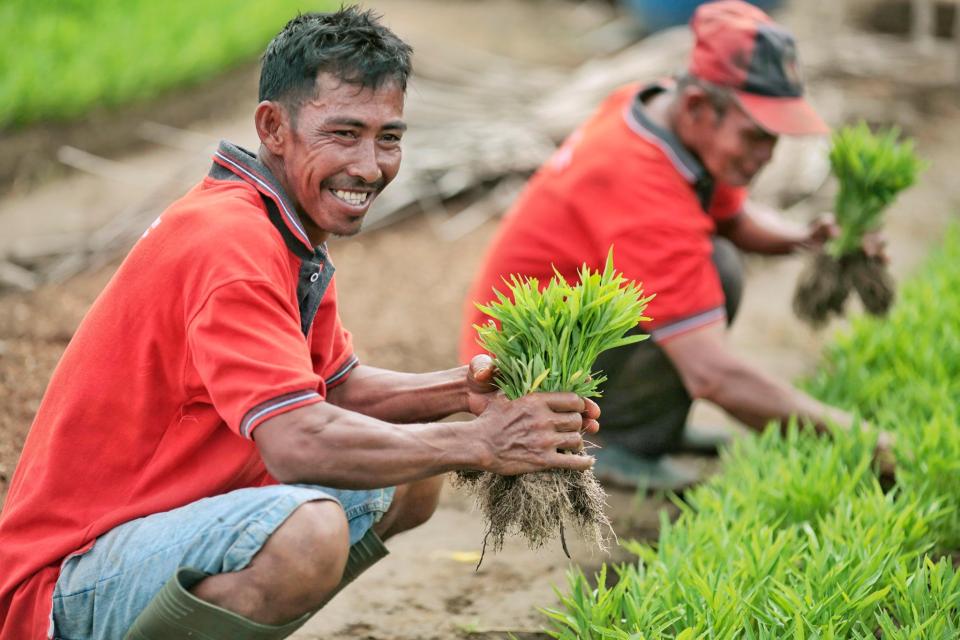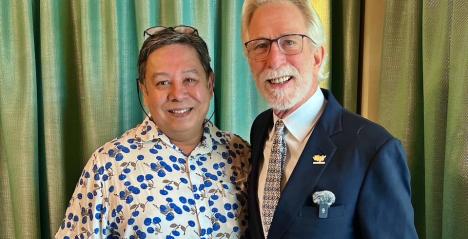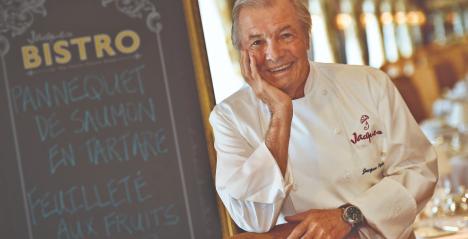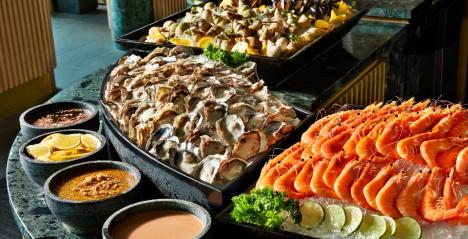Zairul has been working as a traditional farmer in Telaga Village for 16 years. He is one of the few people in the village who choose this profession where the rest of community opt to become fishermen instead.
We came to know the man when back in 2018 we started the Organic Farming program in Telaga and Zairul, who was a banana farmer at that time, was one of the first nine people who participated in our program.
He and the rest of group, most of whom were fishermen, were taught by a facilitator on proper organic farming techniques, how to make organic fertilizers and we also provided them with seeds and necessary tools and equipment.
One of the first activities we did was creating a new farm up on a hill that was managed by them. Sadly in 2019 dry season and pest attack hit the area, causing the crops to die. However we came up with a different plan to create another new farm located down the hill and closer to water source. On this new land plot we planted various kind of vegetables that had economic values like spinach and mustard greens; meanwhile the farm located up on the hill is now being used to grow fruits that require less water like avocados and guava.

“I was given [vegetables and fruit] seeds from the foundation and we formed a [farmers’] group. It’s been good so far, now I get to harvest [the crops] every month,” says Zairul.
Zairul adds that he has gained a lot of valuable farming lessons from the program; he now knows how to grow various kinds of vegetables and fruits, build a green house and has become a self-reliant farmer that can take care of both farms by himself.
Due to the 2019 crop failure the rest of the members decided not to continue with the program so now he is the sole taker of the farms. He is sometimes accompanied by his wife who divides her time between the farms, tending their own garden at home where they also grow vegetables for household consumption and making banana chips to be sold to Bawah Reserve and neighbours.

Zairul says on average his income from selling the crops is one million Rupiah per month, not including the additional revenue from snacks sales made by his wife.
“However during this Covid-19 pandemic the sales has been slow, orders from Bawah [Reserve]aren’t as high as it used to be on normal days,” tells Zairul.
Apart from the pandemic, bad weather also disrupts crops distribution in the area and since they can’t ship out their fresh produce and homemade snacks to other villages, they are selling them to the neighbors at a lower price.
Amidst this challenging time, Zairul still keeps himself busy with the farms and other activities. A couple of months ago we invited him to travel to Kiabu to teach the local community there how to grow organic crops and make organic fertilizers as part of our knowledge-exchange initiative; in return a representative from Kiabu women’s group went to Telaga to teach how to make upcycled products made from waste.
“I went to Kiabu together with members from KWT [women’s group] after Idul Fitri holiday. I taught them about fertilizers and pesticide. [People] from Kiabu also came to our village, they showed us how to make bags from used plastics,” recalls Zairul.
This article was first published in 2020.
About Anambas Foundation:
Anambas Foundation is an Indonesian Foundation that aims to improve the overall ecosystem in the Anambas, both underwater and terrestrial, as well as sustainably lifting the community’s welfare.
About the Author:
Dian Arthen is the Communications and Public Affairs Manager at the Anambas Foundation.
Find out how to take part in preserving the Anambas environment here.











